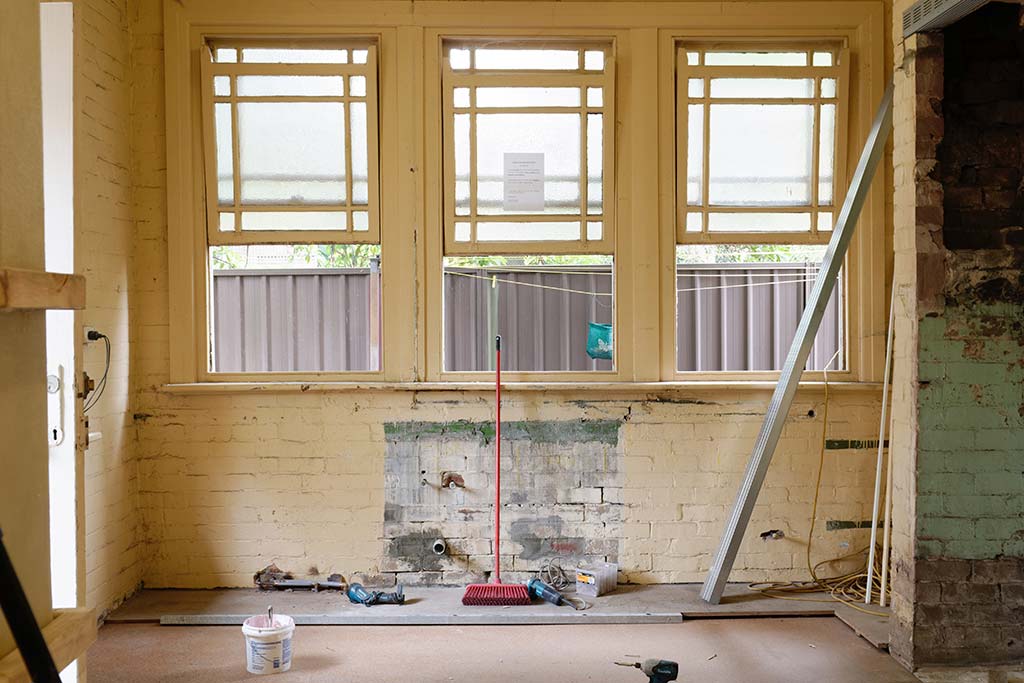Has The Toronto Bubble Finally, Popped?

As a Sales Representative for the Toronto real estate market, I often get asked whether to buy a new build or fixer-upper. Reality is, we don’t see a lot of new builds around here. Rather, the closest you’ll find to a new build is either a condo development or a house undergoing complete renovation. And, in the second scenario, this means someone has elected to tear down the house and build brand new. If this is the case, it usually comes at a premium because of the costs associated from the owner, developer and builder. Not everyone has the budget for that.
So instead, think of it from a different angle and ask:
Before I answer – new build or fixer-upper – consider a few things I discovered from a walk-through with a buyer who asked me to take them through the process of buying a home that required extensive renovation. Here are five questions to think about.
If you’re in a position where money for the home renovation is coming from your existing property sale, where will you live while the project takes place? Factoring in drawings and permits, demolition, possible delays, the committee of adjustment, and everything else that comes with large-scale projects, it can take months to a year or more to complete. During this time, the conditions in the home may not be conducive to your staying there.
Keep in mind, if you work with a contractor who will let you live in the home while they work, are you prepared for inconveniences such as lack of power, water and heat? How good are you with dust, noise, and early morning site arrivals? Rather than trying to save money by living in a construction zone, you’ll want to consider renting an apartment for a year or live with family – especially if there are kids or pets involved! This is another expense or living situation you’ll need to factor in.
More often than not, renovating ends up costing more than you budgeted for. Unexpected things happen, changes need to be made and problems get discovered. Don’t budget down to your last penny. If you’re going with a fixer-upper, it’s best to have a reserve fund for any surprises.
Fact: if you have been approved by a lender for a $1,000,000 mortgage, that doesn’t mean that you’ll get $500,000 for the house and $500,000 for the renovation. Lenders only supply the money on an asset they can re-possess if you stop making payments. Even with a great plan, lenders are not going to fund the project if it isn’t completed. And, by default, you won’t get that cash back. All they will be able to do is sell the house for $500,000 and the remainder may be gone. So, make sure you have a full, sensible, and approved plan for the financing and partners who all agree before pulling the trigger on risky or expensive purchases.
Consider this: You spend $500,000 on a fixer-upper and $500,000 (and a year of your life) to build new or completely renovate a house. Or, you could spend $1,000,000 and buy something comparable to what your finished product would be. What situation is better for you?
There are two things here:
Due diligence – ask yourself, do you already know a reliable and trustworthy contractor/project manager? Have you seen their work, talked to past customers, or seen what their current projects are? It’s important to ensure your contractor is someone who will get the job done working with you and for you. Make sure they’re not just there to collect the money and run. If you already know this person, they may be able to you advice about a property before buying it, too!
Do not DIY – if you are a busy professional with a family, having a good and experienced project manager (often the contractor themselves) makes a big difference. It’s worth every penny. The job involves managing the trades, deliveries, paperwork, orders, and having access to supplies. It’s a full-time job that requires being there and understanding the entire process. Besides physically being there, how well would you understand an HVAC question or have the ability to order steel beams over the phone? What will you do if a building inspector were to shut down your site due to a safety violation while you are in a meeting? Having and paying for good management is crucial to a successful home renovation.
I’m guilty of getting exciting when looking at homes and considering the potential that comes from a renovation. So I understand when buyers and investors also get excited. All of these considerations in buying a new build or fixer-upper are not to talk you out of doing so.
Buying a fixer-upper can be interesting, fun, and satisfying knowing that you’re the one leading a team that makes an old home into the best one on the street. Just keep in mind, the risks and potentially dangerous and financially damaging pitfalls. So, please tread carefully (in steel toed boots) before leaping into a fixer-upper!
—
This article is written by Fox Marin Sales Representative, Ian Busher. With an extensive background in carpentry and contracting, Ian is our resident “Renovations Expert”! He takes pride in his ability to assess the quality and condition of a house. This, in tandem with his talent for speaking to the feasibility and cost of potential renovations, and his eye for the aesthetic details of a property, makes him a powerful partner for anyone looking to buy a home in the Toronto real estate market.